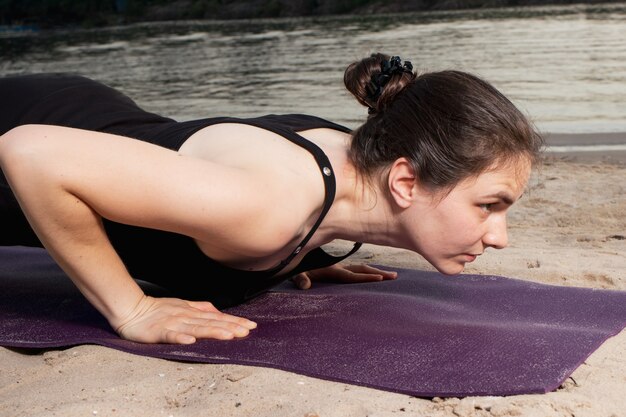Finding Calm in Chaos: Practical Ways to Relieve Anxiety
If you've ever found yourself gripped by anxiety, you're certainly not alone. Millions of people feel the burden of anxiety at some point in their lives. It can sneak up during a work presentation, linger before a social gathering, or even sit silently in the background for no apparent reason. The good news? Effective strategies and techniques can help you manage and alleviate these feelings, guiding you toward a more serene state of mind.
Understanding Anxiety: Recognizing the Signs
Before diving into solution-oriented strategies, it’s essential to understand what anxiety really is and how it might present itself in your day-to-day life. Anxiety is more than just occasional worry or fear; it's a pervasive condition that can affect both the mind and body.
Common Symptoms Include:
- Emotional: Excessive worry, restlessness, and panic attacks
- Physical: Increased heart rate, sweating, headaches, and gastrointestinal issues
- Behavioral: Avoidance of situations, procrastination, and difficulty concentrating
Recognizing these symptoms is the first step in effectively managing them. Now, let’s explore various techniques to calm anxiety naturally and promote mental well-being.
Leveraging Mindfulness and Meditation
The Power of the Present Moment
Mindfulness is a powerful tool that essentially involves focusing on the present moment without judgment. It helps in breaking down endless cycles of worry by gently pulling your thoughts back to the here and now. Practicing mindfulness can reduce overall stress and enhance your awareness of anxiety triggers.
Tips for Practicing Mindfulness:
- Daily Meditation: Dedicate 5-10 minutes daily to meditate and clear your mind.
- Deep Breathing: Focus on your breath, counting slowly as you inhale and exhale.
- Grounding Exercises: Identify five things you can see, four you can touch, three you can hear, and so on to root your awareness in the present.
Embracing Physical Activity
Exercise: A Natural Antidote to Anxiety
Engaging in regular physical activity can drastically lower anxiety levels by releasing endorphins — chemicals that act as natural painkillers. Exercise also improves sleep, boosts self-esteem, and enhances your overall mood.
Effective Exercises for Anxiety Relief:
- Cardiovascular Workouts: Running, cycling, or swimming are great options.
- Yoga: Combines movement and breathwork to ease stress.
- Tai Chi: A gentle form of martial arts focused on balance and flow.
The Importance of Nutrition and Hydration
Feeding the Body and Mind
What you eat can affect how you feel. Consuming a balanced diet rich in nutrients can positively impact your mood and energy levels, thereby reducing anxiety.
Nutritional Tips:
- Complex Carbs: Opt for whole grains to help regulate serotonin.
- Omega-3 Fatty Acids: Found in fish like salmon, these may improve mood.
- Hydration: Keep hydrated, as dehydration can exacerbate anxiety symptoms.
Cultivating a Supportive Environment
Strength in Connection
Being part of a community or having a supportive social network can significantly buffer against anxiety. It’s important to foster relationships and reach out when you need support.
Ways to Build a Support System:
- Join Club/Groups: Find like-minded individuals for hobbies you enjoy.
- Family and Friends: Keep open communication about how you're feeling.
- Seek Professional Help: Therapists and counselors can provide guidance and understanding.
Incorporating Self-Care and Rest
The often underestimated art of self-care is fundamental to managing anxiety. It’s crucial to carve out time for yourself and prioritize activities that replenish your energy and tranquility.
Self-Care Practices:
- Adequate Sleep: Establish a consistent sleep routine.
- Hobbies: Engage in activities that bring joy and relaxation.
- Disconnect: Take breaks from screens and social media to reduce overstimulation.
Cultivating a Growth Mindset
The Power of Positive Thinking
Adopting a growth mindset can transform how you view challenges, replacing a fear-based outlook with curious engagement. This shift can significantly reduce the anxiety associated with change or uncertainty.
Ways to Develop a Growth Mindset:
- Embrace Challenges: View them as opportunities to learn rather than obstacles.
- Practice Gratitude: Regularly reflect on what you're thankful for.
- Affirmations: Use positive affirmations to reframe negative thoughts.
Tools and Techniques for Immediate Relief
Sometimes anxiety can feel overwhelming and needs immediate attention. Here are some quick strategies to bring calm and clarity:
Quick Calm Strategies:
- Progressive Muscle Relaxation: Tense and then relax different muscle groups.
- Visualization: Picture a peaceful and safe place in your mind.
- Journaling: Write down your worries and release pent-up emotions.
Anxiety, though challenging, can be managed with patience and practice. By integrating these techniques and adopting a proactive approach, you can significantly reduce its impact and enhance your peace of mind. Remember, it’s about finding what works best for you and knowing that it’s perfectly okay to seek help when needed.
🌟 Quick Tips for Managing Anxiety:
- 🧘♂️ Practice daily mindfulness and meditation
- 🏃♀️ Engage in regular physical activity
- 🥗 Eat a balanced and nutritious diet
- 👫 Cultivate supportive relationships
- 💤 Prioritize self-care and adequate rest
- 🌱 Foster a growth mindset with gratitude and positivity
- 📓 Utilize quick strategies for immediate relief

